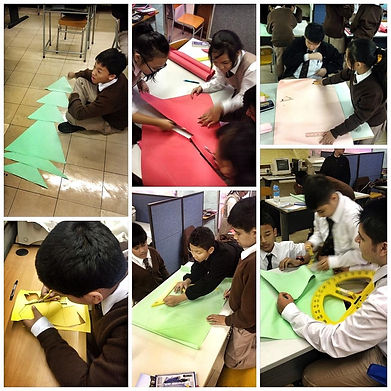"Education does not change the world. Education changes people. People change the world." - Paulo Freire
My Teaching Philosophy
The most important belief for me is that the school should be a safe place to learn for every student. Not only physically, but the students should also feel safe mentally, emotionally, and socially. Through this, the students should feel they can participate, and fit in with the classroom environment.
Likewise, each student has their own needs, strengths, and motivators. Therefore, to support each student, I emphasize personalized learning. This approach allows me to understand my students. Following that, I can guide my students to achieve their learning goals. Moreover, it also ensures equity in education for my students.
Equally, respect is essential in my teaching practice. Respect not only for others but also for oneself and the learning environment. Moreover, where and when needed, I prefer experiential learning and service-based learning to make learning memorable and meaningful.
Even though I am a teacher of science, mathematics, health and social care, I have always valued communication with my colleagues to generate interesting ideas for making teaching adaptable to my students. But there were also times that I have learned that my students learn better when they return from the field trips, listen to and interview the guest speakers and participate in social events.
As an educator of the 21st century, while I make use of digital tools and media in my teaching, my students are also encouraged to become good digital citizens. In addition to that, while I instruct the students to relate the lesson concepts to their daily lives, cultures and society, I also encourage them to respect each other, think critically, raise questions, do not fear making mistakes, as well as share experiences and express emotions to support learning and building the community.
For the evaluation, although I have been working on summative assessment as directed by the board, I have also used formative assessment to go beyond standardized examinations. While that lets me understand my students, I also want them to feel confident, resilient, creative and empathetic lifelong learners with a sense of leadership and global citizenship. On top of this, I also consider the relationship with my colleagues, my students and their family members as a priority which I perform through effective communication and authentic interest.
One size does NOT fit all!
"Education does not change the world.
Education changes people.
People change the world."
- Paulo Freire
Building a Meaningful Community
I believe that all the students have a unique skill set. In addition, when students are from diverse backgrounds, the classroom becomes more interesting. There will be so much to discover, learn and share from different perspectives and experiences. In addition to this, I like to empower my students to create their classroom as an accountable community.


"If you want to go fast, go alone.
If you want to go far, go together."
I facilitate learning through active participation, individualized as well as regular collaborative tasks. While they are also encouraged to apply their
knowledge across different disciplines, I also make the content relevant
to their daily lives.


The activities I develop encourage students to make connections- personal, local, or global -
and to consider how things differ or are similar between cultures.



For me, these 7Cs are the basic blocks to building the characters of my classroom community. While I learned some of these from my colleagues, I also assembled
some from my personal and professional experiences.
In addition, these 7 different colours also represent the idea of Rainbow Nation - the unity of multiculturalism inspired by Archbishop Desmond Tutu, an anti-apartheid and human rights activist.